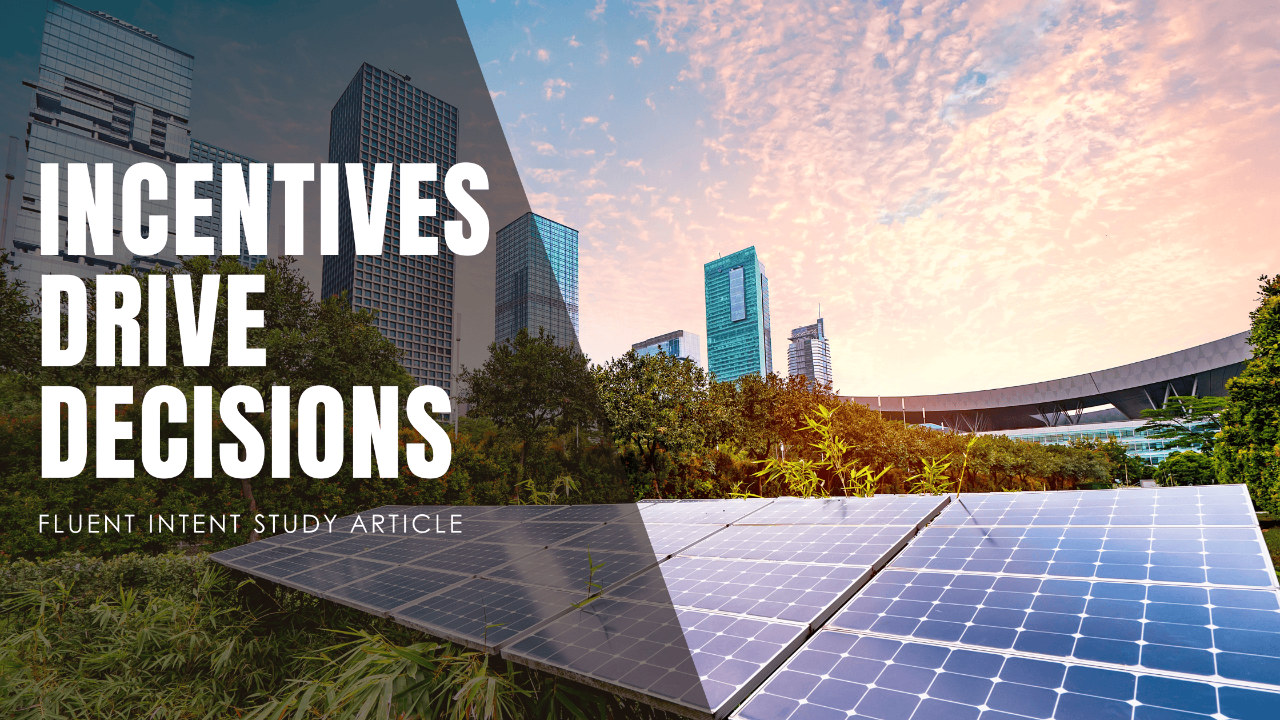English Study Article | Incentives Drive Decisions
Oct 15, 2025
Welcome to Fluent Intent's study articles! This month, we're exploring "Principles" in business, economics, and finance, drawing inspiration from Ray Dalio's Principles and Saifedean Ammous's Principles of Economics.
Each week, you'll discover a new piece connecting timeless ideas to your world—perfect for sharpening both your English and your business insights.
A Note on Today's Scenario
This article presents a realistic 2025 scenario designed to illustrate key business vocabulary in action. While fictional, it mirrors real policy shifts you've likely encountered in business or the news. As you read, consider: Where have you seen similar incentive structures drive dramatic market changes?
Power Up Your Business Vocab
Incentive /ɪnˈsen.tɪv/
Definition: A reward or benefit that motivates specific behavior or decisions
In action: "The performance bonus served as a powerful incentive for the sales team to exceed targets."
Subsidy /ˈsʌb.sɪ.di/
Definition: Government financial support designed to encourage specific industries or activities
In action: "The renewable energy subsidy made solar installations profitable for small businesses."
Pivot /ˈpɪv.ət/
Definition: To fundamentally change business direction or strategy in response to new conditions
In action: "When streaming took off, the company pivoted from physical media to digital content."
Catalyze /ˈkæt.əl.aɪz/
Definition: To trigger or accelerate significant change or reaction
In action: "The new regulation catalyzed a wave of innovation in sustainable packaging."
Carrot and stick (idiom)
Definition: A motivation strategy combining rewards (carrot) with penalties or pressure (stick)
In action: "The company's carrot and stick approach offered bonuses for early adoption but fines for delays."
Boom /buːm/
Definition: A period of rapid economic growth or increased activity in a specific sector
In action: "The fintech boom created thousands of jobs and attracted billions in investment."
The Story: When Policy Meets Profit
The call came at dawn: It's early 2025, and Washington has just delivered a huge surprise to the energy sector. A sweeping new tax credit program offers unprecedented incentives for companies transitioning to renewable energy—up to 40% cost reductions for solar installations and manufacturing.
The market's response is electric, quite literally.
At SunPulse, a scrappy startup that's been struggling to compete with fossil fuel giants, CEO Maria Rodriguez sees opportunity written in the policy details. "This catalyzes everything we've been working toward," she tells her team during an emergency strategy meeting. "We're not just adjusting our timeline—we're fundamentally pivoting our entire business model."
Within weeks, SunPulse transforms from a boutique solar installer to an ambitious mass producer. The subsidy eliminates their cost disadvantage, turning what was once a luxury purchase into a mainstream option. Stock prices surge 15% as investors recognize the paradigm shift.
But SunPulse isn't alone in this gold rush. Across the industry, companies face the classic carrot and stick: generous tax relief for green energy adoption versus looming carbon penalties for traditional fuel use. It's a case study in behavioral economics—offer the right incentive structure, and entire industries will reorganize themselves.
The irony isn't lost on seasoned energy executives. Traditional fossil fuel infrastructure still boasts undeniable advantages—massive scale, proven reliability, and decades of optimized supply chains. Coal and natural gas plants can ramp up production in hours, not weeks. Their energy density remains unmatched, and their existing distribution networks span continents. These aren't obsolete technologies; they're mature, battle-tested systems that have powered global economic growth for generations.
Yet incentives are reshaping the playing field faster than technical merit alone. The effects ripple outward like stones in a pond. Nevada and Arizona become overnight boom towns as solar manufacturing hubs emerge. Traditional utilities, some grudgingly and others eagerly, begin their own strategic pivots—not because their existing assets are worthless, but because the economic winds have shifted. Supply chains strain under sudden demand, creating new bottlenecks even as old problems disappear.
For business leaders watching from the sidelines, the lesson is crystal clear: when incentives shift, strategy follows. The question isn't whether change will come—it's whether you'll lead it or be dragged along behind it.
Think About It
For Your Strategy: What incentives currently drive your industry's behavior? How might policy changes or market shifts create new opportunities for strategic pivots?
For Your Career: Think about your own motivation structure—what "carrots and sticks" influence your professional decisions? Are you responding to the right incentives for long-term success?
For Your Organization: How effectively does your company use incentive design to drive desired behaviors among employees, customers, or partners?
Dive Deeper
-
Renewable Energy Tax Credits: Policy Impact Analysis - Brookings
-
How Incentives Shape Corporate Behavior - Harvard Business Review